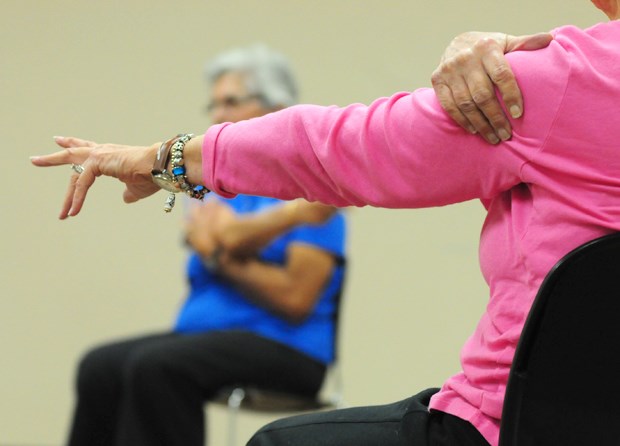I don’t know about you, but recently I have been surrounded by people with colds – it just can’t be helped it seems.
People are in various stages of the common cold and of course many of us cannot take the time to fully recover before we get out into the community.
For some, pneumonia might also be part of the picture.
Rainy, cold winter weather is often the harbinger of the flu, pneumonia and cold season and many of us can’t fly down south to avoid the worst of the weather, so we hopefully practise prevention methods including getting a flu shot, washing our hands often, and avoiding those who are sick so we can help reduce the risk of illness.
While most people are aware of these common-sense precautions, one of the most overlooked prevention measures is the practice of good oral health.
According to a federal government website on oral hygiene, “Good oral hygiene can help prevent the development of lung infections such as pneumonia, especially for seniors who have a hard time swallowing. Pneumonia may be caused by the inhalation of harmful types of mouth bacteria, which accumulate when the mouth is not cleaned properly and regularly. Good oral hygiene can reduce the risk of such bacteria going into the lung”.
Oral health is important at all stages of life, but especially for older adults and seniors who are keeping their teeth longer than ever before.
The site goes on to say that poor oral health is associated with other issues.
People with diabetes are more at risk for mouth infections, poor oral health may increase the risk of heart attack and stroke, and it may lower self-esteem, reduce social interactions and be a factor in lower quality of life.
The Canadian Dental Association, in an article called “Oral Health Good for Life” states, “Although researchers are just beginning to understand this relationship, evidence shows that oral disease can aggravate other health problems and that keeping a healthy mouth is an important part of leading a healthy life.”
So how can we practise good oral hygiene?
The Canadian Dental Association suggest five ways to achieve good oral health. They suggest keeping your mouth clean which includes brushing and flossing at least twice daily and keeping your sugar and carbohydrates down to a minimum. They also suggest checking your mouth consistently for gum disease and seeing your dentist and/or dental hygienist regularly.
The article “Oral Health for Life” states, “48 per cent of Canadians who haven't seen a dentist in the past year have gum disease. Regular dental exams and professional cleanings are the best way to prevent and detect problems before they get worse.”
Eating a healthy diet full of healthy snacks, fruits, veggies is also recommended, as is not smoking or chewing tobacco.
Some seniors and their caregivers say it is harder for older people to care for their teeth and mouth as they age.
They cite a number of factors including: low to moderate income levels which curtails their ability to see a dentist or hygienist regularly, reduced or no access to dental plans, cognitive impairment, disabilities such as arthritis, and living in a long-term care seniors’ facility.
The federal website on oral health has some methods for good dental and denture care, modifying your toothbrush if it is difficult to use and for assisting a person with dementia or who is in a care facility.
Take care of your mouth everyone, it may save you from an unneeded illness.
Margaret Coates is the co-ordinator of Lionsview Seniors’ Planning Society. She has lived on the North Shore for 48 years and has worked for and with seniors for 20 of those years. Ideas for future columns are welcome Email: [email protected] . Missed a column? Check out the North Shore News or Lionsview websites.



